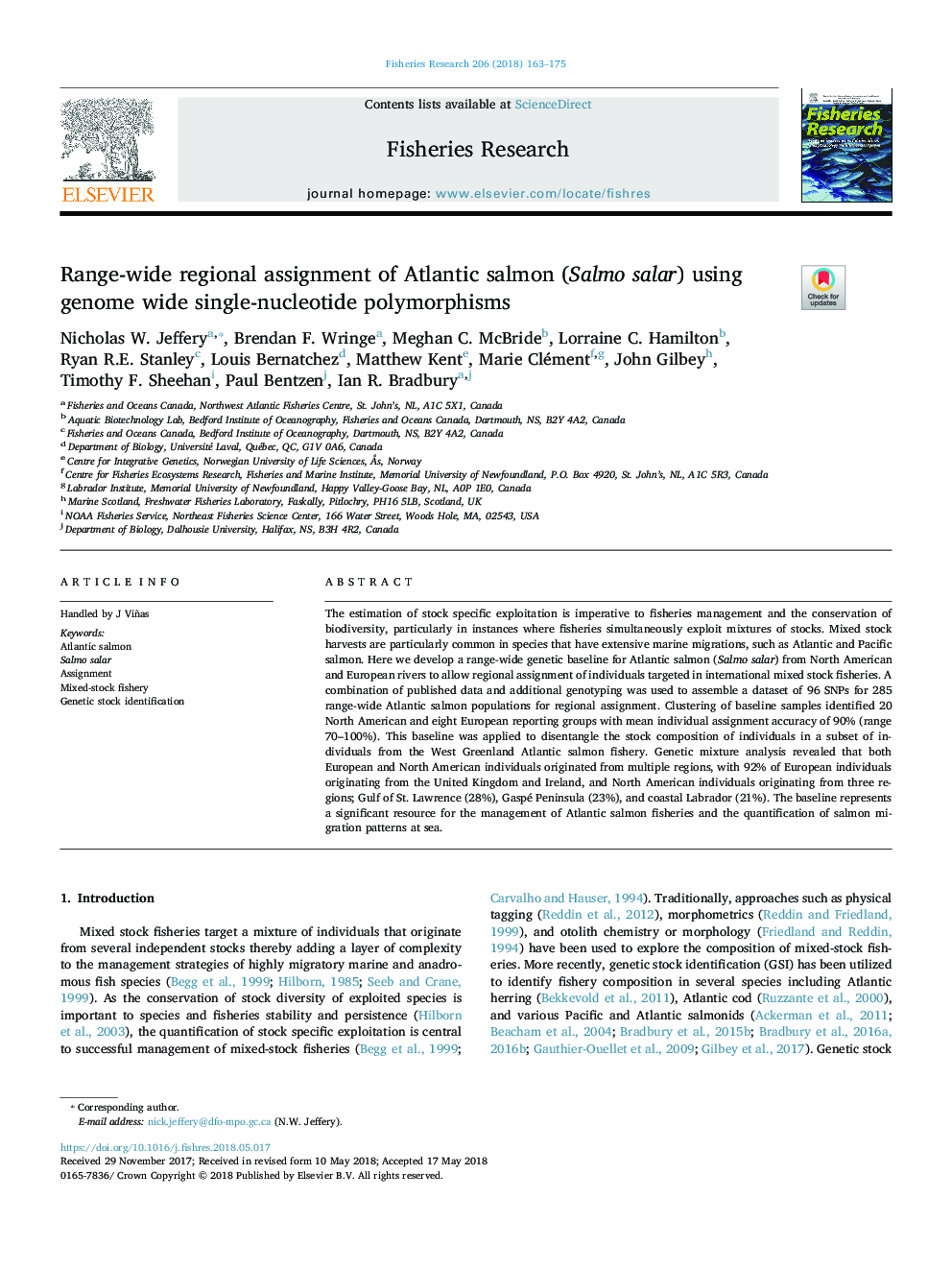| Article ID | Journal | Published Year | Pages | File Type |
|---|---|---|---|---|
| 8885279 | Fisheries Research | 2018 | 13 Pages |
Abstract
The estimation of stock specific exploitation is imperative to fisheries management and the conservation of biodiversity, particularly in instances where fisheries simultaneously exploit mixtures of stocks. Mixed stock harvests are particularly common in species that have extensive marine migrations, such as Atlantic and Pacific salmon. Here we develop a range-wide genetic baseline for Atlantic salmon (Salmo salar) from North American and European rivers to allow regional assignment of individuals targeted in international mixed stock fisheries. A combination of published data and additional genotyping was used to assemble a dataset of 96 SNPs for 285 range-wide Atlantic salmon populations for regional assignment. Clustering of baseline samples identified 20 North American and eight European reporting groups with mean individual assignment accuracy of 90% (range 70-100%). This baseline was applied to disentangle the stock composition of individuals in a subset of individuals from the West Greenland Atlantic salmon fishery. Genetic mixture analysis revealed that both European and North American individuals originated from multiple regions, with 92% of European individuals originating from the United Kingdom and Ireland, and North American individuals originating from three regions; Gulf of St. Lawrence (28%), Gaspé Peninsula (23%), and coastal Labrador (21%). The baseline represents a significant resource for the management of Atlantic salmon fisheries and the quantification of salmon migration patterns at sea.
Keywords
Related Topics
Life Sciences
Agricultural and Biological Sciences
Aquatic Science
Authors
Nicholas W. Jeffery, Brendan F. Wringe, Meghan C. McBride, Lorraine C. Hamilton, Ryan R.E. Stanley, Louis Bernatchez, Matthew Kent, Marie Clément, John Gilbey, Timothy F. Sheehan, Paul Bentzen, Ian R. Bradbury,
